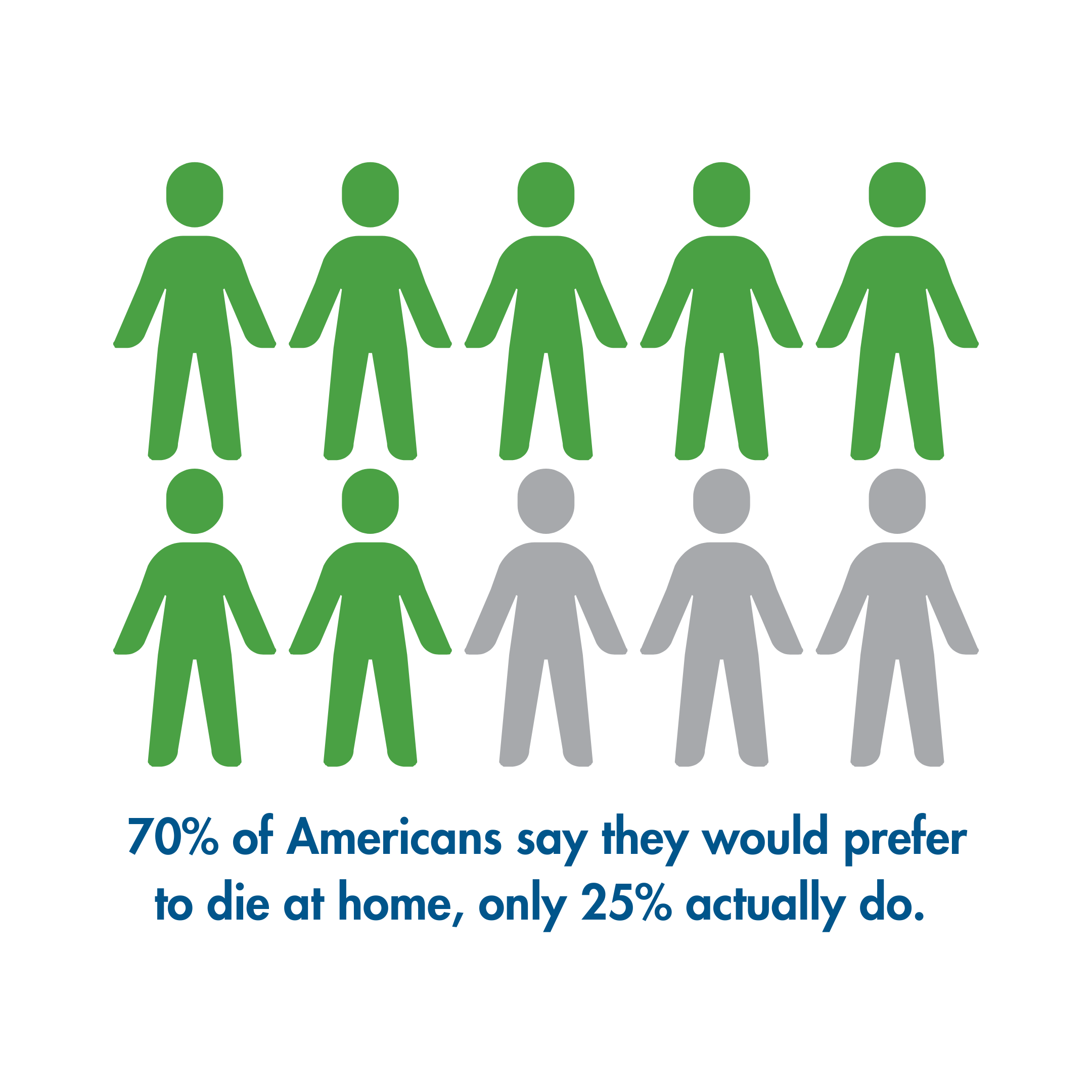Starting the Conversation
Difficult discussions that demonstrate caring and love.
We’re here for you.
We can help.
It’s normal to be unsure how to discuss topics like hospice care and advanced care planning. Residential Hospice has helped thousands of patients and their families have these “Courageous Conversations” with honesty and care. We’ve seen time and again the peace of mind that comes when patients and their families can reach a place of better understanding, clarity, and emotional readiness.

Ask Yourself About Your Care Goals
There is more than one way to approach a life-limiting illness. Take time to consider what is most important to you.

Is your current course of treatment serving your health goals?
- Is illness keeping you from spending time and energy on the things you most want to do?
- Would you prefer to stay out of the hospital and be in the comfort of your own home?
- Do you want to stay active and comfortable throughout the day?
- How long do you want to continue aggressive treatment?
- Would you want to use extreme measures to prolong your life?
- Do you need help with daily activities like bathing and dressing?
- Could you benefit from comfort therapies or additional companionship?
Choose Your Own Path
The only certainty we can offer each other is the chance to fulfill a loved one’s wishes and give them the end-of-life journey they desire. Residential offers the Journey Program to our patients, a service dedicated to providing information specific to a patient’s needs that allows them to make decisions without being overwhelmed.
Journey Counselors serve Residential patients who have a chronic, advanced, and/or terminal illness, as well as patients who are interested in learning more about end-of-life care options. These counselors are available to you even if you are continuing to seek aggressive treatment.
“ We are firm believers that there are angels right here on earth with us and you’ve proven that. We cannot express how deeply our family’s gratitude is for your delicate and sympathetic care that was extended to our father in his time of need by Residential Hospice. ”
Common Hospice Questions
Residential Hospice services are focused on optimizing quality of life, comfort, and dignity for patients. We provide excellent medical care, as well as caring for emotional and spiritual needs of patients.
Discover more about the facts of hospice below and how it will impact you and your loved ones.
A person may choose hospice if his or her doctor determines that the person has 6 months or left to live, if the disease follows the expected course. There is no requirement to be actively dying, or even bed-bound. As long as a doctor determines that a patient remains eligible, there is no limit to the amount of hospice care a person can receive.
Hospice care is available to people of all ages with any kind of life-limiting illness, including cancer, advanced Alzheimer’s disease, heart disease, lung disease, kidney disease, and HIV/AIDS.
Residential Hospice brings our care services to wherever our patients are including homes, apartments, assisted living facilities, nursing homes, long-term care facilities, or hospitals.
While aggressive treatments related to the hospice diagnosis may be discontinued, we can provide a different avenue of treatment with the goal of comfort. Treatments not related to the hospice diagnosis may continue. All medications will be evaluated and the patient, family, and nurse will determine what regimen to take based on the patient’s goals.
Hospice care is fully covered by Medicare, Medicaid, and most private insurance plans. All needed medications and medical equipment that are related to the hospice diagnosis are covered. Learn more about paying for hospice care.
You will not be forced to have a Do Not Resuscitate (DNR) order. Our team can educate you and your loved ones on what it means to have a DNR or not and supports whatever decisions you make.
Lend a Hand
Contributions help the under-insured or those without insurance receive the hospice care they need. Residential Hospice will provide services wherever a patient considers “home”.

